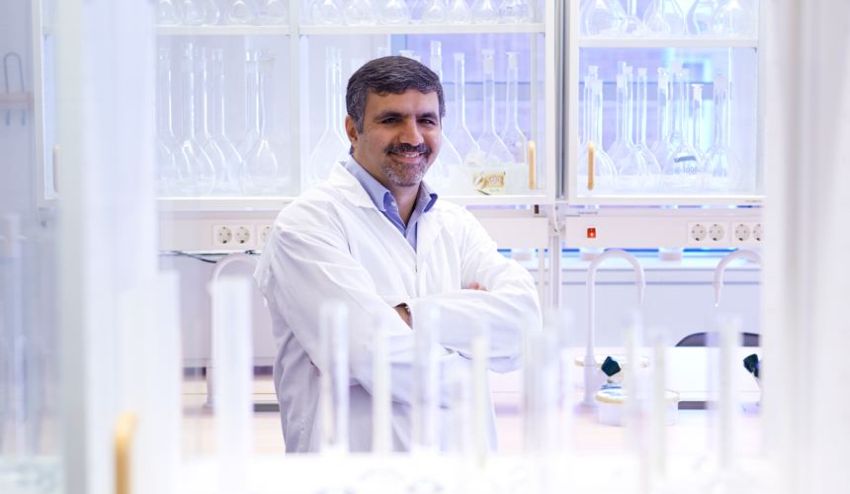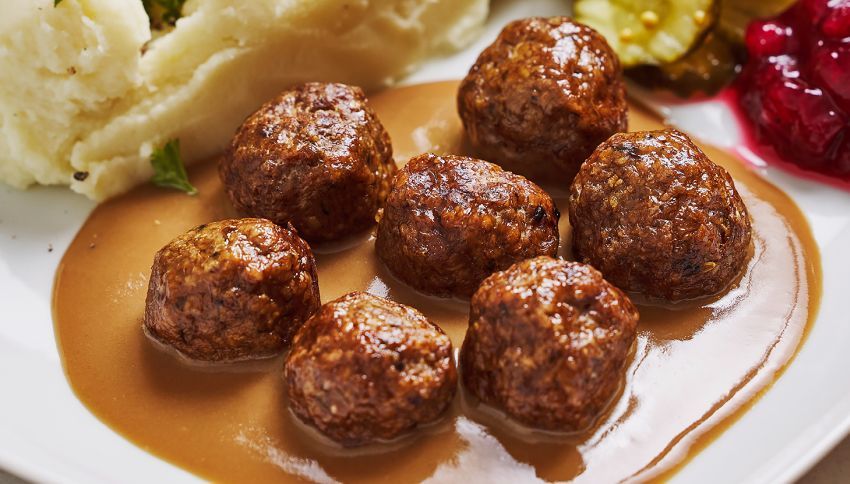[ad_1]
Swedish startup Millow has emerged from stealth mode with a new approach to alternative protein. The company is currently seeking funds to scale up production of its minimally-processed meat substitutes made from oats and mycelium grown in a process it claims uses a fraction of the water and energy used by brands such as Quorn, with lower capital expenditure.
Millow is working with a large branded food manufacturer to introduce co-branded Millow bites and mince to the retail market next year, and is looking to raise about €6.3m to fund production for the launch.
Chairman Staffan Hillberg told AFN: “We have a small pilot facility in Gothenburg, but our aim is to scale up pretty quickly at a larger facility to 20,000 tons a year. During these last two years we’ve been in stealth mode and we’ve signed an agreement with one of the biggest players in the Nordics.”
Millow’s technology is based on the work of mycelium expert Mohammad Taherzadeh, professor of bioprocess technology at the University of Borås, and is outlined in the company’s first published patent.
While several firms are growing fungal biomass to make meat analogs (Mycorena, Mush, The Better Meat Co, Quorn, Enough, Nature’s Fynd, Meati Foods, MyForest Foods), Millow is adding mycelium to a plant-based substrate (initially oats) in a novel fermentation process to create hybrid products with a ratio of around 50% fungi and 50% plants.
Another startup using a hybrid approach is Kinoko in Israel, although Millow says its approach is slightly different.
‘It’s more like controlled environment agriculture [than food processing].’
During the fermentation process, which lasts around 12-16 hours until a certain density is reached, the fungi are added to the oats, eat away at the starch, and start to favorably alter texture and nutrition.
The fungi/oat combo can grow in any shape or form, depending on the shape and dimensions of the containers it grows in, without requiring expensive downstream processing, and has a balanced nutritional profile with protein, fiber, vitamins and minerals.
After the product is ready, it can be shipped fresh or frozen to food manufacturers and sold as a solo packaged product or combined in prepared meals, says the firm, which is also targeting the foodservice segment.
It’s not tempeh…
While it sounds like tempeh, which is made via solid-state fermentation, Millow products have a meatier taste, bite, appearance and texture and don’t disintegrate when cooked in a sauce, claimed Hillberg.
“Millow is not tempeh. It’s made very differently, looks different, has a different texture and tastes very different… Millow has a pleasant juicy and bouncy meat-like texture without binders… and it doesn’t melt when used as an ingredient in stews.”
Unlike players growing fungal biomass in liquid suspension, meanwhile, Millow does not require expensive stainless steel fermentation tanks, said CEO Esmaeil Taherzadeh (Prof. Taherzadeh’s son).
“It’s more like controlled environment agriculture [than food processing] in custom equipment we’ve designed that’s made by co-manufacturers, so think of highly-automated big chambers. We looked at these players using wet fermentation in big steel vats and asked, can we do this in a better way? And we came up with a totally new process.”
Taherzadeh added: “Our fermentation system is between solid and submerged fermentation. It’s much faster and way more efficient compared to solid state fermentation and uses a lot less energy and water than submerged fermentation.”

A technology in between solid and submerged fermentation’
Millow—which has a 15-strong team based in Gothenburg— grows its products in the S-Unit, a proprietary “combination of advanced hardware and software, controlling and manipulating mycelium to grow with certain precision and properties, in what we call controlled environment fermentation,” explained Taherzadeh.
“The S-unit technology is modular which makes it very convenient to scale compared to traditional mycelium production technologies.” The modularity also creates redundancy should one unit encounter issues, he said.
“It only uses one-third of the energy normally used by traditional submerged/wet fermentation, and 2.3% of the water, which translates into 95% CO2 savings.
“Further, the necessary investment in equipment is only one-third compared to submerged fermentation. The system setup is also designed for adding automation and handling, which reduces operation costs and improves financials. Additionally, it provides higher safety for mycelium growth resulting in an overall improved food safety, as each unit is equipped with a decontamination system.”

Labeling and regulatory
As for the regulatory path forward, said Hillberg, “We have about 1,000 fungal strains and different substrates [beyond oat], but we’re starting with non-novel strains. The Swedish National Food Agency (Livsmedelsverket) has confirmed in writing that Millow is not considered a novel food and can be produced and sold according to standard food safety and quality standards.
“ On the ingredients list, it would say mycelium and oats, plus any spices or seasonings that might be added.”
CEO Esmaeil Taherzadeh has a “background setting up production facilities internationally and as we close our round, he will focus on our production and we are recruiting a new CEO,” explained Hillberg.
CFO Saijad Taherzadeh—also Prof. Taherzadeh’s son—”has a strong background in software and will continue to be involved with the company as we expand,” he said.
“The Taherzadeh family is the majority shareholder, but all our team members are shareholders including me and [high-profile designer] Rob Janoff, who helped us develop the Millow brand identity.”
Minimally-processed
But what about marketing and messaging? How do you describe what Millow is doing to consumers and potential customers?
According to Hillberg, who says consumers are looking for less processed meat alternatives, “We see it as a whole food, non-processed vegan product offering complete nutrition.”
Investors, meanwhile, “like the fact we have a unique, sustainable production model that can be scaled very efficiently. We see food companies closing down because of high energy prices.”
[ad_2]
Source link

